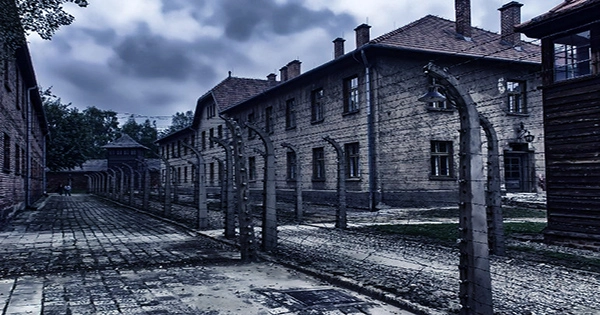Historically, trauma and hunger have been blamed for the abrupt cessation of menstrual cycles (amenorrhea) suffered by captives in Nazi concentration camps, but recent research depicts a much grimmer picture. The authors of the study discover proof that synthetic steroids were added to the food provided to female Jewish prisoners in order to reduce their fertility. They base their findings on recorded historical sources and interviews with Holocaust survivors.
Over 98 percent of women ceased menstruation as soon as they entered the concentration camps, the researchers wrote. Peggy J. Kleinplatz, the study’s author, comments on this startling number in a statement, saying that such a sudden and uniform effect could not have been brought on by famine or stress.
“This abrupt beginning of amenorrhea either didn’t occur, or occurred slowly in connection with famine and trauma over a 12- to 18-month period,” she said. “Throughout other awful mass crimes in history.” “What was happening to these women in the death camps, then, that was unusual, caused it to happen right away, and couldn’t be properly explained by the theories of trauma, hunger, or both? At that point, I started looking into whether there had been an intentional effort to stop these Jewish women’s periods.”
The researchers found that all but two of the 93 Holocaust survivors—who were on average 92 years old—developed amenorrhea as soon as they arrived at the camps after listening to their tales. They disclose that the only ladies who continued to menstruate blamed it on finding something added to the soup occasionally and refusing to eat those times.
One woman, who just so happened to be in the middle of her period when she arrived, claimed she was made to take a drug that stopped her cycle. Other survivors who saw women being “taken out of line for pills or injections, leading the women to stop menstruation,” confirmed this allegation.
Another Auschwitz kitchen worker recalled adding packets of “grain-like, very, very light pink substances” to the soup to prevent “women from getting their periods.”
The researchers report that “this’soup’ was supplied to the female convicts solely — not to the male inmates, and was never consumed by the guards.”
Documentation submitted at the Nuremburg war crimes trial held shortly after the Holocaust revealed additional proof of the use of chemicals altering reproductive functions in Nazi concentration camps. As an illustration, a letter documenting a meeting of senior Nazi officials at “Führer Headquarters” in July 1942 showed that the “subject of discussion was the sterilization of Jewesses.”
It was determined at the meeting that Auschwitz would be the site of experiments to develop a plan to “find a method which would lead to the sterilization of persons without their awareness.”
The researchers’ compelling claim that significant amounts of sex steroids were created in Germany during World War II raises questions about why the Nazis would give hormone production priority during the conflict. However, the authors of the study are unable to determine precisely which chemicals would have been used in the concentration camps because it appears that Nazi leaders ordered individuals involved in sterilizing Jewish women to work without keeping written records.
However, they do know that 98% of survivors had problems during pregnancy during the Holocaust and were unable to have as many children as they had hoped. A quarter of the 197 confirmed pregnancies resulted in miscarriage, and 6.6 percent of those gave birth to stillborn babies.
Despite the fact that most women wanted more children passionately, just 16 percent of research participants were able to carry more than two babies to term.
















